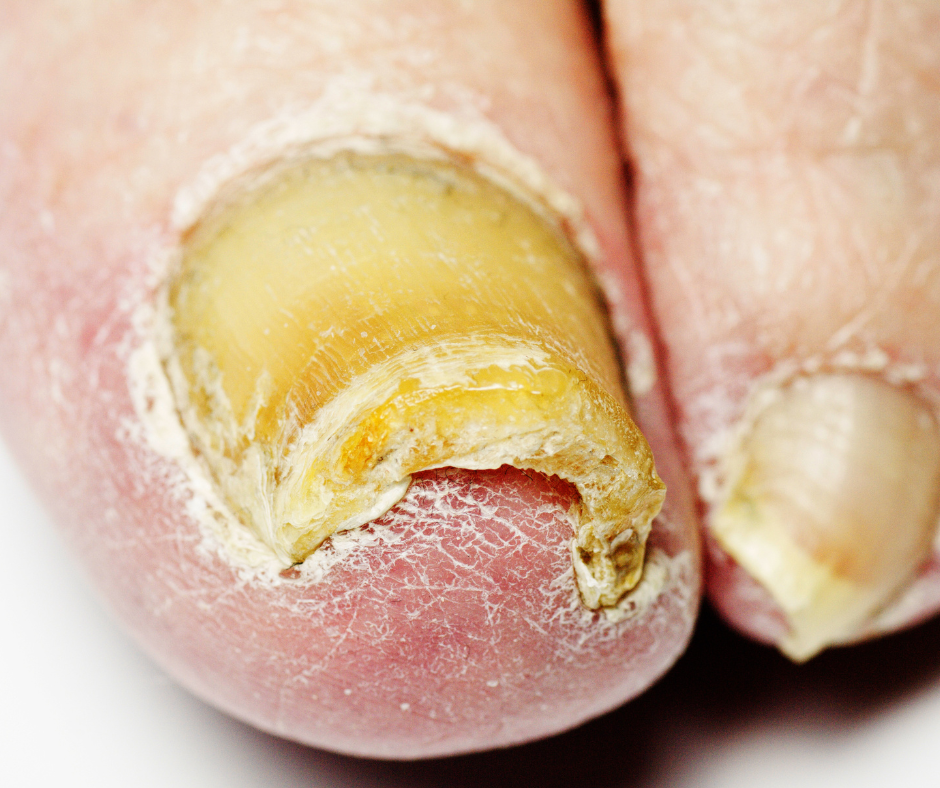
While many foot conditions seem purely cosmetic, they can often indicate underlying health issues or infections that require attention—and thick toenails are no exception. In this blog, Syracuse Podiatry delves into facts about thick toenails and explores what they can potentially signify for your foot health.
Understanding Thick Toenails
Thick toenails are characterized by an abnormal thickening or hardening of the nails, resulting in a discolored, brittle, and uneven appearance. This condition can affect one or multiple toenails and may be accompanied by other symptoms such as nail crumbling, yellowing, or a foul odor. While fungal infections are a common cause of thick toenails, several other factors can contribute to their development.
Common Causes of Thick Toenails:
- Fungi thrive in warm, moist environments, making toenails susceptible to infection, especially in individuals who frequently wear closed-toe shoes or participate in activities that promote foot sweating.
- Trauma or injury, such as stubbing your toe or dropping a heavy object on it, can damage the nail matrix and lead to thickening as the nail grows. Additionally, repetitive friction or pressure from ill-fitting shoes can cause thickening and deformity of the toenails over time.
- Aging changes in blood circulation and nail structure can contribute to the thickening of the toenails. Reduced blood flow to the extremities can impair nail growth and lead to thickened, brittle nails that are more susceptible to fungal infections and other conditions.
- Skin conditions such as psoriasis, eczema, or lichen planus can affect the nails, causing them to thicken, become discolored, or develop ridges. These conditions often involve inflammation and immune system dysfunction, which can impact nail health and appearance.
- Certain systemic diseases, including diabetes, peripheral arterial disease, and thyroid disorders, can manifest with changes in toenail thickness and texture. These conditions affect blood flow, nerve function, and immune response, predisposing individuals to nail abnormalities and infections.
Thick toenails can serve as important indicators of underlying health issues that require attention. If you suspect that your thick toenails may be indicative of a condition that needs attention, Syracuse Podiatry is your best bet for top-tier foot-related care and knowledgeable podiatrists! Contact us today so Dr. Ryan L. D’Amico, Dr. Donal M. Erickson, Dr. Keith Sherman, and Dr. Nicholas Cronin can help your feet feel their best.
